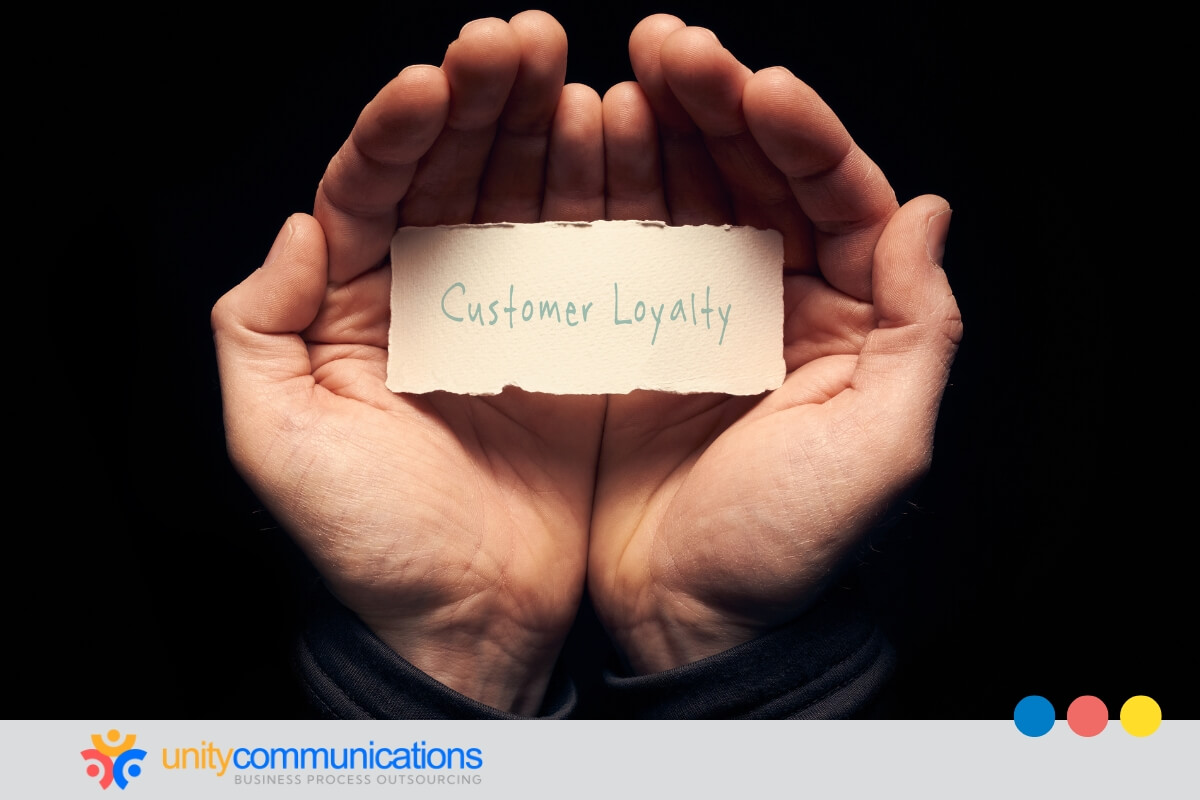Table of Contents
More businesses increasingly hire third-party teams to cut costs, improve efficiency, and focus on core competencies. But how does this shift affect corporate social responsibility (CSR)?
Despite its benefits, business process outsourcing (BPO) can introduce significant CSR risks, ranging from unfair labor practices to unethical environmental practices. All these issues can undermine a company’s credibility, strain relationships, and result in the loss of stakeholder trust.
This article explores how CSR affects outsourcing reputation and offers actionable strategies to manage the associated risks. Read below to learn more.
How CSR shapes corporate reputation and public trust

CSR is your commitment to responsible ecological and social business methods. Corporate reputation reflects how stakeholders perceive your trustworthiness and integrity.
Embedding CSR into your operations directly enhances corporate reputation, indicating you are cost-effective and purpose-driven. This perception eventually strengthens customer loyalty, attracts socially conscious investors, and differentiates the company in competitive markets.
The numbers back this up. A 2024 PwC survey shared that 80% of consumers will pay nearly 10% more for eco-friendly goods.
Conversely, the lack or poor execution of CSR programs can harm brand equity and the bottom line as customers leave and stakeholder trust declines. It also raises non-compliance risks due to poor working conditions or violations of environmental and labor laws.
Ultimately, this underscores how ethical business practices are foundational to building and sustaining long-term growth, customer trust, and brand resilience.
How CSR influences outsourcing reputation among consumers
Outsourcing has long been a polarizing issue. What BPO companies offer are cost savings and improved operational efficiency. However, they often raise concerns about job losses, labor exploitation, and weakened product quality.
Besides its economic benefits, a BPO company’s ethical standards shape public perception. When outsourcing decisions reflect strong CSR values, you are more likely to maintain and grow a positive reputation. Hiring service providers with poor compliance with labor laws or environmental protection risks backlash, even if cost savings are significant.
Modern consumers are more socially conscious and better informed than ever before. They are quick to hold companies accountable for the actions of their outsourcing partners. Negative press or viral social media content exposing poor working conditions or environmental negligence can lead to boycotts, public criticism, and long-term reputational damage.
Companies that actively communicate their CSR efforts in outsourcing can strengthen their connection with socially conscious consumers and build long-term brand loyalty.
Risks of neglecting CSR in outsourcing
Ignoring how CSR affects outsourcing reputation can have far-reaching consequences beyond immediate operational hiccups. For instance, if your outsourcing partner practices child labor or unsafe working conditions, you can face public protests, supply chain disruptions, and increased regulatory scrutiny.
The following further enumerates the key risks:
- Reputational damage. Negative media coverage related to outsourcing scandals can erode customer trust and weaken brand equity.
- Legal and regulatory issues: Partnering with suppliers that violate labor or environmental laws can result in fines, sanctions, and legal action.
- Loss of customer trust. Consumers are willing to switch brands if they perceive unethical practices in the supply chain.
- Investor withdrawal. Poor CSR practices can lower environmental, social, and governance (ESG) scores, decreasing investor confidence and increasing capital flight.
The fallout from poor CSR practices in outsourcing can also disrupt operations, increase supply chain instability, and create internal morale issues. Worse, rebuilding trust after a crisis can take years and require significant investment in brand recovery efforts.
Key business benefits of CSR-driven outsourcing strategies

Integrating CSR into outsourcing delivers significant business advantages beyond protecting a company’s reputation. It drives meaningful business outcomes:
- Enhanced brand reputation. Ethical practices build customer trust and differentiate your brand in competitive markets.
- Competitive edge. Committing to responsible sourcing can position your business as a forward-thinking industry leader.
- Stronger stakeholder relationships. Transparency and ethical practices strengthen trust among investors, customers, and regulatory bodies.
- Operational resilience. Ethical sourcing practices often lead to more stable supply chains and improved partner relationships.
- Talent acquisition. Sustainable, responsible companies are attractive to top-tier professionals seeking purpose-driven employers.
- Reliable marketing credibility. Emphasizing ethical labor practices, environmental sustainability, and social impact in corporate communications can enhance customer engagement and loyalty.
- Increased revenue. A 2023 IBM report found that 71% of consumers will pay more for transparent brands.
These advantages show clearly how CSR affects outsourcing reputation by shaping a company’s narrative: one that values ethics, sustainability, and long-term stakeholder relationships.
Effective strategies for embedding CSR in outsourcing partnerships
To effectively integrate CSR into outsourcing practices, you need a strategic, well-executed plan:
- Conduct thorough due diligence. Evaluate potential outsourcing partners based on their labor practices, environmental impact, and ethical standards. Rely on third-party certifications (e.g., SA8000, ISO 14001) and request supplier self-assessments and past audit reports.
- Establish clear CSR guidelines. Develop and communicate CSR policies to ensure alignment with outsourcing partners. In contractual agreements, include clauses about fair working conditions, minimum wages, and carbon emission thresholds.
- Monitor and audit regularly. Schedule third-party audits annually or biannually. Supplement with surprise site visits and digital compliance tracking tools. Require service providers to submit quarterly CSR performance reports.
- Engage local communities. Incentivize outsourcing partners to support CSR-aligned initiatives such as local hiring or clean water access. Partner with local nonprofits to develop community projects and assess their impact.
- Foster transparency. Publish an annual sustainability or CSR report that includes information about outsourcing programs. Use supply chain mapping software to visualize sourcing and improve traceability.
- Refine the agreements. Build mechanisms for regular stakeholder feedback, such as employee surveys or joint CSR working groups. Review and revise CSR policies annually to reflect changing laws, global standards, or stakeholder expectations.
When you are proactive in setting and enforcing CSR standards, companies mitigate risk and demonstrate how CSR affects outsourcing reputation through transparent, values-driven business operations.
How to measure the reputation impact of CSR in outsourcing
Quantifying the effects of CSR in outsourcing requires a combination of qualitative and quantitative methods:
- Customer perception surveys. Gather feedback on how customers view the company’s ethical and sourcing practices.
- Brand sentiment analysis. Monitor social media and market research to assess shifts in public perception.
- Investor confidence. Track stock performance and shareholder sentiment related to CSR initiatives.
- ESG ratings. Evaluate external ratings and industry benchmarks for CSR performance.
- Supplier performance reports. Measure outsourcing partners’ adherence to CSR standards and the impact on operational outcomes.
Evaluating how CSR affects outsourcing reputation can refine ethical sourcing strategies and better communicate their value to stakeholders. For instance, improvements in ESG scores can attract socially responsible investors, while increased customer loyalty might translate into higher sales and market share.
Overcoming challenges in sustaining CSR across outsourced operations

Maintaining consistent CSR standards across global outsourcing operations presents several ongoing challenges:
- Cultural and regulatory differences. Diverse legal and cultural norms can complicate CSR compliance.
- Lack of transparency. Suppliers might misreport data or conceal unethical practices.
- Cost pressures. Maintaining high CSR standards increases operating costs, challenging cost-cutting goals.
- Supply chain complexity. Multi-tiered supply chains make it harder to monitor and enforce CSR policies consistently.
Addressing these problems requires balancing cost efficiency with ethical responsibility. Begin by building strong relationships with suppliers, investing in monitoring technology, and maintaining open dialogue with local communities and regulators.
Leveraging third-party BPO certification programs and independent audits also strengthens oversight and improves accountability in outsourced operations.
The bottom line
Knowing how CSR affects outsourcing reputation is a strategic business strategy. Embedding it in your outsourcing decisions enhances brand reputation, customer and investor trust, and competitiveness.
Ignoring CSR in outsourcing can lead to reputational damage, financial loss, and regulatory issues that outweigh any short-term cost savings and productivity gains.
Prioritizing CSR is essential for businesses looking to elevate their outsourcing strategies while strengthening their brand. Let’s connect to explore how to make your outsourcing efforts ethical and practical.




